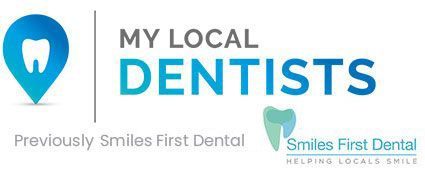 Approximately 1 million Australians are been diagnosed with diabetes, and it is estimated that half again that number have diabetes without being aware of it.
Approximately 1 million Australians are been diagnosed with diabetes, and it is estimated that half again that number have diabetes without being aware of it.
The prevalence of type 2 diabetes, rises with age and is higher in men than in women.
The onset of type 1 diabetes is typically at an early age, thus it is the most common form of childhood diabetes although it can occur at any age.
Australia is ranked 7th highest in the world for prevalence of type 1 diabetes in children aged 0-14 years and 6th highest for incidence. Adding to this, there is a growing number of children and adolescents who are now affected by type 2 diabetes.
Why does this matter to us at My Local Dentists Northmead? Because diabetes can contribute to major damage to your teeth and gums.
How Are Gum Disease And Diabetes Related?
Diabetes reduces the body’s resistance to infection, and puts the gums at risk for gingivitis, an inflammation usually caused by the presence of bacteria in plaque. This can also cause inflammation and destruction of tissues surrounding and supporting teeth, gums, bone and fibers that hold the gums to the teeth.
What Other Types Of Problems Could I Experience?
Diabetics may experience burning mouth syndrome and fungal infections, such as thrush and oral candidiasis. Dry mouth (xerostomia) also may develop, causing an increased incidence of decay. To prevent problems with bacterial infections in the mouth, your dentist may prescribe antibiotics, medicated mouth rinses and more frequent cleanings.
Causes Of Periodontal Disease In Diabetics
Blood vessel thickening. In diabetes, blood vessels that deliver oxygen to the body thicken. This slows nutrient and waste transport in and out of tissues. This weakens gum and bone resistance to infection, and periodontal disease is more likely to set in.
Bacteria. Bacteria grows freely in the oral cavity of a diabetic suffering from poorly controlled blood glucose. This contributes to bacteria getting into gum and bone of the mouth, which sets a person with diabetes up for periodontal disease.
Smoking and diabetes. Nicotine displaces oxygen in the blood stream to all tissues, including gum and bone in the mouth. Smoking gives you added circulation issues on top of the ones that you already have with diabetes. Smokers are as much as five times more likely than nonsmokers to have gum disease.
Diabetes with poor control (remember increased blood glucose equals more plaque), combined with poor brushing and flossing habits can lead to periodontal disease. Plaque build-up under the gum line occurs first. Then your gums become irritated, swollen, and may visibly redden. You may also notice that they bleed when you are brushing your teeth or flossing.
This is the first stage of periodontal disease, called gingivitis.
When gingivitis is allowed to survive in your mouth, the second stage, called periodontitis, occurs. This is an infection of the gums underneath and around the teeth. This infection gets into little pockets of the gum, and causes plaque to build up and harden deep under the gum surface. If it goes deep enough to affect the bone, tooth loss may follow.
Dental Tips For Diabetes And Periodontal Disease Prevention
The following are some tips that people with diabetes should follow in order to prevent periodontal disease
- Keep your blood glucose in your target range
- See your dentist for regular six month check-ups and cleanings, or even more often if your dentist recommends it
- Tell your dentist that you have diabetes, and let him or her know your recent diabetes numbers
- Brush teeth at using gentle circular motions at least twice daily with a soft bristle tooth brush using fluoride toothpaste, and don’t forget to brush your tongue and get a new toothbrush every three months
- Floss daily using a long piece of dental floss, working your floss along the gum line and up each tooth, and rinse well
- Drink fluoridated water, or use a fluoride rinse to prevent tooth decay
- Use an anti-plaque mouth rinse to help prevent plaque build up
- Use a dental pick or brush, which are tools that can get between the teeth better than a toothbrush
- Keep dentures clean, and remove them at night and get adjusted if they don’t fit properly
Dental Care at My Local Dentists Northmead in Northmead
At My Local Dentists Northmead your oral health and the appearance of your smile is important to us. Our highly trained staff can treat any dental issue, including complicated issues related to other health conditions, including diabetes. Our commitment to our patients is dental health and an attractive smile for a lifetime!
GAP FREE Checkup And Clean
We offer all patients gap-free check ups, cleans and all preventative treatments if you are in a private health fund ($180 for patients not in a private health fund).
Contact your Northmead dentist at (02) 9630 9996 or book your appointment online.

